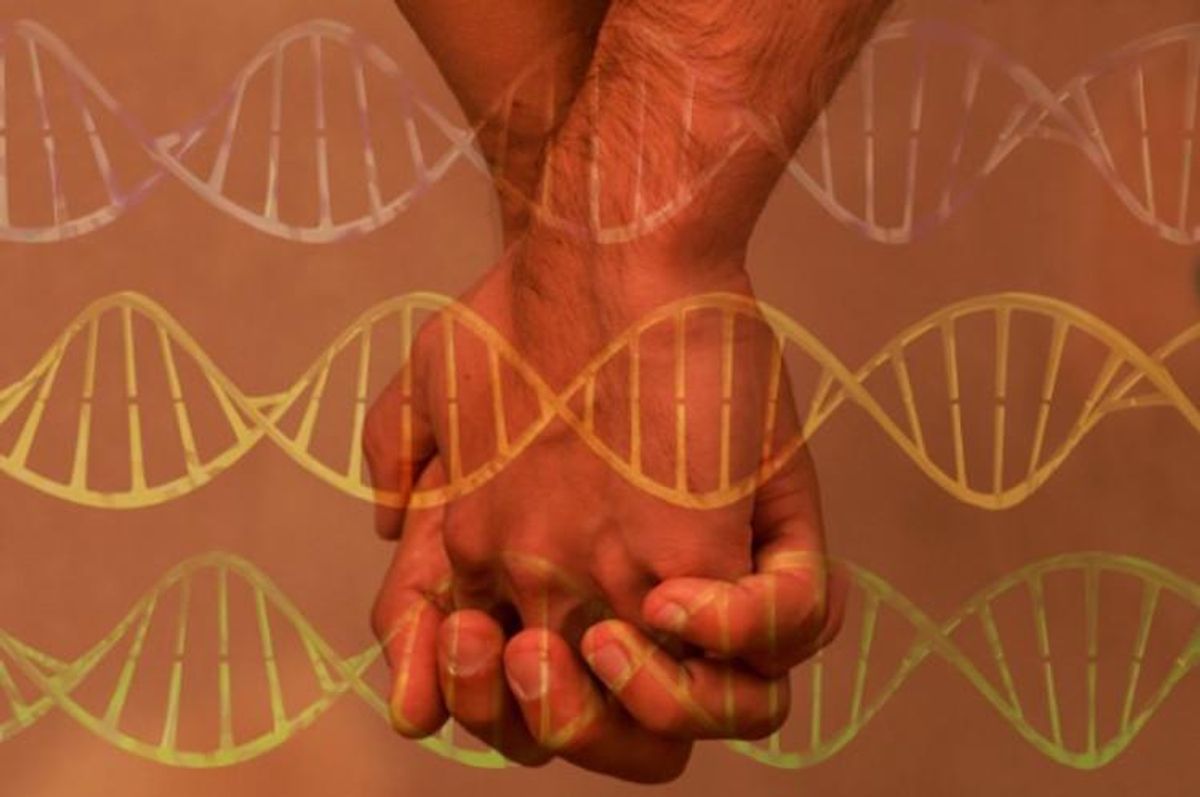A new study reported by the Science Daily could help explain how homosexuality has persisted throughout human history despite the fact that homosexual men seldom produce offspring. According to the findings, "around half of all heterosexual men and women potentially carry so-called homosexuality genes that are passed on from one generation to the next."
The study was conducted by Giorgi Chaladze of the Ilia State University in Georgia, and published in Springer's journal Archives of Sexual Behavior. To reach this bold conclusion, Chaladze "used an individual-based genetic model to explain the stable, yet persistent, occurrence of homosexuality within larger populations. He took into account findings from recent studies that show that homosexual men tend to come from larger families. These suggest that the genes responsible for homosexuality in men increase fecundity (the actual number of children someone has) among their female family members, who also carry the genes."
The findings could also explain the high number of bicurious boys in the world. As the report states:
"The possibility that many heterosexual men are carriers can also explain why estimates of the number of men who have reported any same-sex sexual behavior and same-sex sexual attraction are much higher than estimates of those who self-identify as homosexual or bisexual. According to Chaladze, non-homosexual male carriers might sometimes manifest interest in homosexual behavior without having a homosexual identity."
It is important to note, however, that there is debate in the scientific community if a "gay gene" even exists.



















































































